The United States and Ukraine Sign a Long-Awaited Critical Minerals Deal
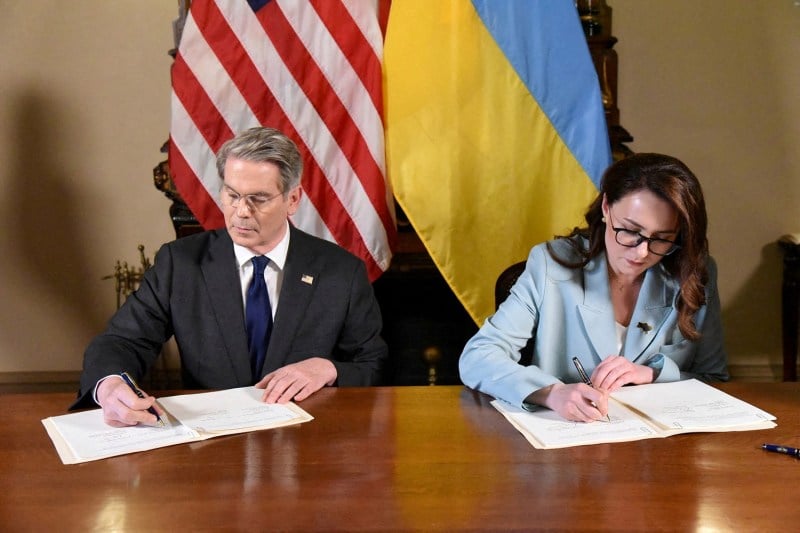
The United States and Ukraine Sign a Long-Awaited Critical Minerals Deal
After months of fraught negotiations, Washington dropped some key demands but did not provide security guarantees to Kyiv.
U.S. Treasury Secretary Scott Bessent and Ukrainian Economy Minister Yulia Svyrydenko sign a deal in Washington on April 30. Yulia Svyrydenko via Facebook/via Reuters
Welcome back to World Brief, where we’re looking at the U.S.-Ukraine mineral deal, wildfires in Israel, and local elections in the United Kingdom.
Signed, Sealed, and Delivered
The United States and Ukraine signed a much-anticipated critical minerals deal on Wednesday, paving the way for American firms to gain preferential access to Kyiv’s natural resources. The deal comes after months of fraught negotiations, including the explosive Oval Office confrontation between Ukrainian President Volodymyr Zelensky and U.S. President Donald Trump earlier this year.
Welcome back to World Brief, where we’re looking at the U.S.-Ukraine mineral deal, wildfires in Israel, and local elections in the United Kingdom.
Signed, Sealed, and Delivered
The United States and Ukraine signed a much-anticipated critical minerals deal on Wednesday, paving the way for American firms to gain preferential access to Kyiv’s natural resources. The deal comes after months of fraught negotiations, including the explosive Oval Office confrontation between Ukrainian President Volodymyr Zelensky and U.S. President Donald Trump earlier this year.
The two countries came close to reaching a deal back in February, but negotiations broke down after Trump demanded $500 billion worth of Ukraine’s minerals to compensate the United States for its support of Kyiv during the Russia-Ukraine war and refused to provide explicit security guarantees in return. “I am defending Ukraine, I cannot sell our country,” Zelensky said at the time, explaining his rejection of the U.S. draft proposal.
Since then, though, Ukrainian negotiators have successfully convinced Washington to drop some key demands. This includes keeping the door for a European Union membership open and not treating past U.S. aid to Ukraine as debt. However, the agreement does not include U.S. security guarantees.
The renewed deal, which needs to be ratified by the Ukrainian parliament, will establish a joint reconstruction investment fund and give the United States preferential rights to mineral extraction in the country, while reaffirming Kyiv’s sovereignty over its resources. “All resources on our territory and in our territorial waters belong to Ukraine,” Yulia Svyrydenko, the Ukrainian economy minister, told CNN. “It is the Ukrainian state that determines where and what to extract.”
Ukraine holds more than 100 major deposits of critical minerals that are used in everything from advanced weapons systems to clean energy technologies, including titanium, uranium, lithium, as well as some oil and natural gas. But it remains to be seen whether the war-torn country can develop—and commodify—the natural resources anytime soon.
“Many of its [Ukraine’s] critical minerals deposits remain in contested environments that will take years to bring to market, assuming that a negotiated peace keeps those minerals in Ukraine,” wrote Reed Blakemore, the director of research and programs at the Atlantic Council Global Energy Center.
Still, the deal communicates that Washington is interested in supporting Ukraine’s long-term interests. U.S. Treasury Secretary Scott Bessent hailed the deal as a “historic economic partnership” and said that it “signals clearly to Russia that the Trump Administration is committed to a peace process centered on a free, sovereign, and prosperous Ukraine over the long term.”
Today’s Most Read
- Trump’s First 100 Days Reveal a ‘Strongman’s’ Unprecedented Weakness by Michael Hirsh
- Get Ready for the Aleutian Island Crisis by Alex Alfirraz Scheers
- Rubio’s Reorganization Plan Is a Wrecking Ball by Jessica Stern
What We’re Following
Wildfires in Israel. The Israeli government on Wednesday declared a state of national emergency after wildfires raged on the outskirts of Jerusalem, prompting the evacuation of communities and the closure of a main highway. The fires broke out on Israel’s memorial day, on Wednesday, and ahead of the country’s independence day, on Thursday, forcing the cancellation of many events.
Israeli Prime Minister Benjamin Netanyahu said that the “deadly combination” of strong winds and dryness had exacerbated the wildfires. By Thursday, an estimated 5,000 acres of land had been scorched, according to the Jewish National Fund, an organization that oversees forestry efforts. While the exact cause of the fire remains unclear, Israeli authorities have arrested at least three people on suspicion of arson.
Israel has requested international aid to fight the wildfires and reached out to Britain, France, Greece, Italy, and other countries. The Palestinian Authority has also offered to help; Palestinian firefighters previously worked alongside Israeli responders to fight a similar blaze in 2021.
Waltzing out. Trump has selected Mike Waltz, the national security advisor, to be the next U.S. ambassador to the United Nations, after the White House recently withdrew Rep. Elise Stefanik’s nomination from the post. In March, Waltz drew heavy criticism after he accidentally included a journalist in a Signal group chat that discussed sensitive information regarding impending U.S. military strikes in Yemen.
“From his time in uniform on the battlefield, in Congress and, as my National Security Advisor, Mike Waltz has worked hard to put our Nation’s Interests first. I know he will do the same in his new role,” Trump posted on social media. In the same post, the president assigned U.S. Secretary of State Marco Rubio as the interim national security advisor.
Last month, the president fired several National Security Council officials after meeting with Laura Loomer, a far-right activist and conspiracy theorist, who raised concerns about staff disloyalty. “In addition to facing blame for Signalgate, Trump advisors and allies also reportedly viewed Waltz as too hawkish on Russia and Iran at a time when the president is pursuing a peace agreement to end the Russia-Ukraine war as well as a new nuclear deal with Tehran,” wrote FP’s John Haltiwanger. “But it’s widely suspected that Loomer’s growing influence over Trump is largely to blame here.”
Britons head to polls. Voters across England are participating in local elections today, with more than 1,600 council seats and six mayoral positions on the ballot. This is the first time the country is holding local elections since the 2024 general election, when the Labour Party, led by now-Prime Minister Keir Starmer, secured a landslide victory against the Conservatives and ended their 14-year hold on power.
With both the Labour and Conservative parties currently struggling, though, the local races could potentially end decades of two-party dominance as voters remain frustrated over a stagnant economy and Starmer’s budget cuts. According to early polls, the far-right Reform U.K. party led by Nigel Farage is poised to make a political comeback and win hundreds of council seats.
Farage, who ardently campaigned for Brexit and is a longtime supporter of Trump, has held MAGA-style rallies across the country and campaigned on an anti-immigration agenda. “I encourage all of our supporters to go out and cause a political earthquake on Thursday. Your local council needs Reform,” Farage said in a statement. The election results are expected to start coming in early Friday local time.
Odds and Ends
From Jakarta to France, workers across the world annually celebrate May 1 as International Workers’ Day, also known as May Day. However, the shadow of Trump’s tariffs and immigration crackdown looms large over this year’s festivities. In Germany, union leaders warned against crumbling labor protections. In Japan, workers took part in demonstrations and advocated for higher wages, gender equality, and health care. Meanwhile, in the United States, which celebrates Labor Day in September, thousands of workers gathered in downtown Chicago to rally against Trump’s policies on immigration and workers’ rights.
Anusha Rathi is an editorial fellow at Foreign Policy. X: @anusharathi_
More from Foreign Policy
-

A drawn illustration of a Trump whirlwind on a red background Four Explanatory Models for Trump’s Chaos
It’s clear that the second Trump administration is aiming for change—not inertia—in U.S. foreign policy.
-

Marco Rubio is seen up close, sitting on a couch beside J.D. Vance. Marco Rubio’s Soulless Crusade
The U.S. secretary of state stands for no principle other than serving the man who appointed him.
-

Soldiers from various NATO allies take part in a military exercise at the Smardan Training Area in Smardan, Romania, on Feb. 19. America Will Miss Europe’s Dependence When It’s Gone
European self-reliance for security will cost U.S. jobs, profits, and influence.
-

A collage photo illustration shows Donald Trump gesturing with arms wide. In front of him are headshots of Benjamin Netanyahu and Vlodymyr Zelensky, images of immigratns and ICE police, a tattered EU flag and America First signs. Trump’s First 100 Days on the Global Stage
Ten thinkers on what to make of the opening salvo of the president’s second term.
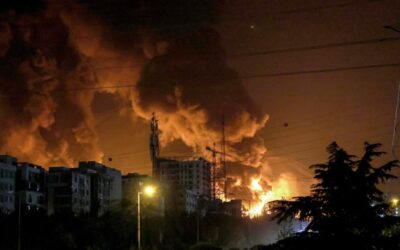
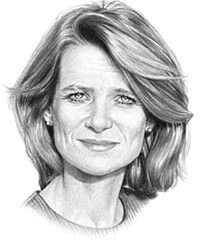
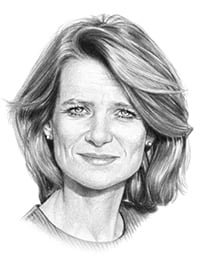
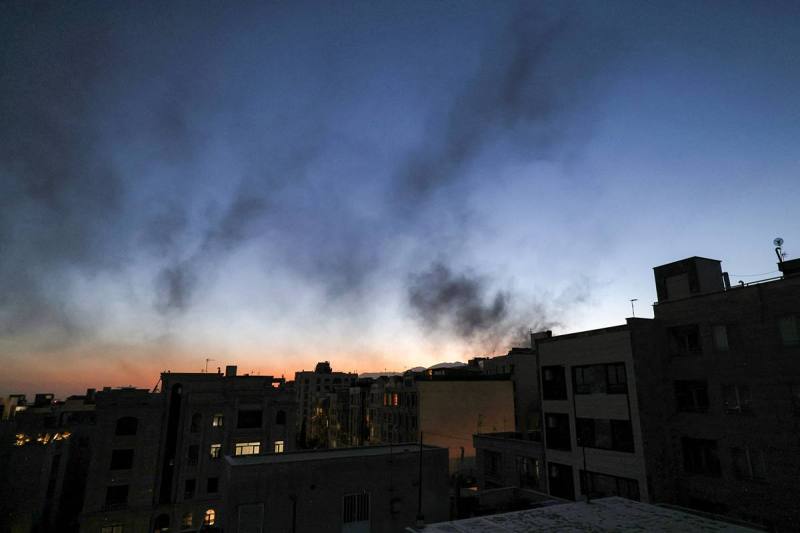


Join the Conversation
Commenting on this and other recent articles is just one benefit of a Foreign Policy subscription.
Already a subscriber?
.
Subscribe
Subscribe
View Comments
Join the Conversation
Join the conversation on this and other recent Foreign Policy articles when you subscribe now.
Subscribe
Subscribe
Not your account?
View Comments
Join the Conversation
Please follow our comment guidelines, stay on topic, and be civil, courteous, and respectful of others’ beliefs.
Change your username |
Log out
Change your username:
CANCEL
Confirm your username to get started.
The default username below has been generated using the first name and last initial on your FP subscriber account. Usernames may be updated at any time and must not contain inappropriate or offensive language.